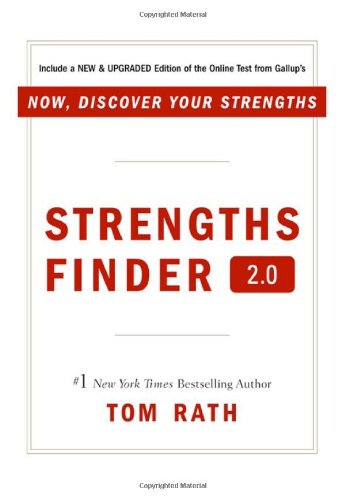Successful brands evoke feelings from their consumers. The best brands pick specific positive and relevant feelings that can be associated with the products they represent and laser-focus their advertising to drive home messages reflective of those feelings.
Coca-Cola is about togetherness and good times. Band-Aid is about comfort and security during life's boo-boos. McDonald's is about getting a quarter-pounder with cheese anywhere in the world at most times throughout the day (although they may call it a Royale with cheese if they have the metric system).
If someone read through every tweet you've ever posted, what would you be about? If your answer might be unclear or unpleasant, consider this personal branding 101 strategy for Twitter.
Getting in Touch with Your Strengths
You evoke feelings from Twitter followers, good or bad. The first step of a strong Twitter personal brand is to figure out what feelings you want people to associate with you.
Enter data. The Clifton StrengthsFinder personality assessment uses a ~30-minute online questionnaire to plot you against thousands of other individuals and then provides you with your 5 top strengths among a list of 34. For example, mine are:
- Activator
- Maximizer
- Futuristic
- Communication
- Strategic
Personal Branding for Twitter
Next, simply reference your strengths when you tweet and think about how to emphasize them as you craft your update. This small, yet powerful habit can help shape and reinforce a greater personal brand through Twitter.
Using my strengths as an example, Maximizers might want to share ideas about business process improvement or optimization while those with Futuristic might demonstrate this strength best by tweeting about new products like Google Glass.
Using two or more strengths within a single tweet takes practice, but emphasizes even more your unique combination of attributes. Activator/Communication tweets might be about empowering staff using social media. Futuristic/Strategic/Maximizer tweets might predict the best demographic to target for market success when developing for Google Glass.
Even personal/humorous tweets can be "on-brand" when they align what you're good at as a person. Using your strengths as a guide to what to tweet doesn't turn out to be all that confining. It's just more of an ongoing reminder of how to best position the types of things you want to share in a way that reinforces a consistent brand and evoke the desired emotions and feelings about your personal brand.
If you know your strengths, try out this exercise over the next few weeks to see if you can get into the habit, and if you do, come back and share whether you think it helped your personal brand take hold on Twitter. If you don't know your strengths, take the StrengthsFinder personality assessment at the end of every new copy of Tom Rath's StrengthsFinder 2.0.



